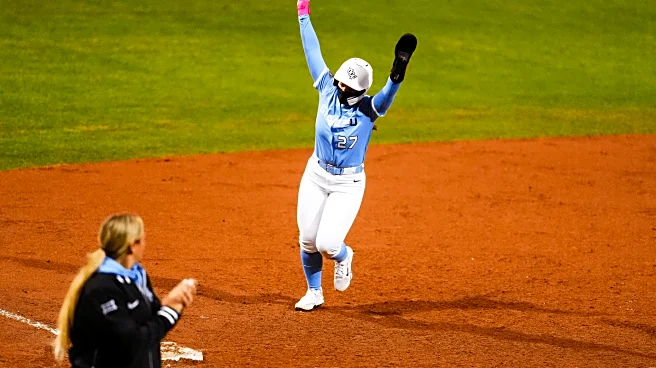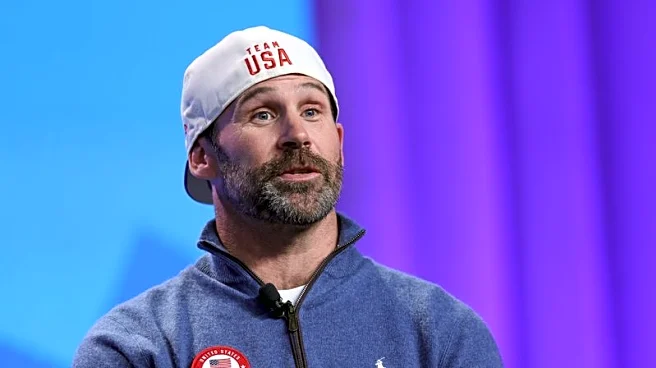What's Happening?
Japanese baseball star Munetaka Murakami is entering Major League Baseball (MLB) free agency, marking a significant moment for teams seeking to bolster their lineups with international talent. Murakami,
known for his power hitting, has played for the Tokyo Yakult Swallows in Nippon Professional Baseball (NPB) for eight seasons. His free agency process begins on November 8 and will last until December 22, during which he can negotiate with any MLB team. Murakami's move is facilitated by MLB's posting system, which requires the signing team to pay a transfer fee to the Yakult Swallows. This fee is structured based on the contract value, with percentages applied to different tiers of the contract amount. Murakami's agent, Casey Close, represents several high-profile MLB players, indicating strong potential for lucrative offers.
Why It's Important?
Murakami's entry into MLB free agency is significant for several reasons. It highlights the growing trend of Japanese players transitioning to MLB, following in the footsteps of stars like Shohei Ohtani. Murakami's power hitting and versatility in playing both first and third base make him a valuable asset for teams looking to enhance their offensive capabilities. His availability could influence team strategies, particularly for franchises like the New York Mets and San Diego Padres, who have shown interest in Japanese talent. The financial implications are also noteworthy, as the transfer fee system ensures compensation for the Yakult Swallows, reflecting the economic dynamics of international player transfers.
What's Next?
As Murakami's free agency period unfolds, MLB teams will likely engage in negotiations to secure his services. Teams with existing vacancies at first or third base, such as the Seattle Mariners and San Diego Padres, may be particularly aggressive in pursuing Murakami. The outcome of these negotiations could reshape team rosters and impact the competitive landscape of the league. Additionally, Murakami's decision will be closely watched by fans and analysts, as it may set a precedent for future international player transfers.
Beyond the Headlines
Murakami's move to MLB could have broader implications for the cultural exchange between Japanese and American baseball. It underscores the increasing globalization of the sport and the potential for cross-cultural influences in playing styles and team dynamics. Furthermore, Murakami's success in MLB could inspire more Japanese players to consider similar transitions, potentially altering the talent pipeline between the two leagues.











